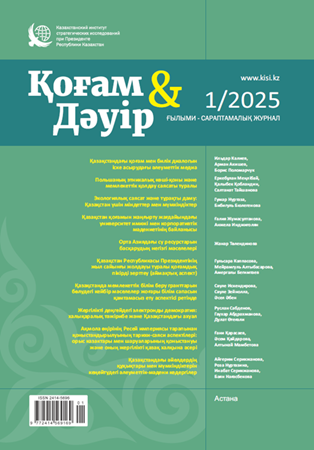Abstract
The article presents the results of a sociological study on the study of the corporate culture of the Karaganda University named after Buketov E.A.
Karaganda University named after Buketov E.A. has a long and rich history - since 1938, when a teacher's institute was opened in Karaganda. The university has gone through a long period of formation and evolution as a major regional educational and scientific center, organizationally changing various forms of ownership and management - from a fully state-owned classical institution of higher education to a modern university in the form of a non-profit joint-stock company, located in the space of a free global international educational market.
The purpose of the study is to analyze the corporate culture and assess the state of its main elements at this stage of university development, as well as to develop recommendations for further development of the university's image, through increasing the human resources potential of employees and successful university integration of students into the educational process and postgraduate integration of graduates into the Alumni community.
The object of this study were teachers, support staff and students of Karaganda University named after Buketov A.A.
As the results of the analysis showed, according to the assessments of the university staff and students, the role and importance of the university's corporate culture is increasing in modern conditions. A strong corporate culture contributes to a high external and internal image of the university, increasing its fame and attractiveness to applicants, employee loyalty ensures the integration of the university teaching staff into the daily life of the university and the educational process, and reduces staff turnover.
Based on the results of the study, recommendations were formulated aimed at further developing a cohesive and integrated corporate culture of a modern university and implementing best practices in the daily life of a university.

This work is licensed under a Creative Commons Attribution 4.0 International License.
Copyright (c) 2025 ҚОҒАМ ЖӘНЕ ДӘУІР


